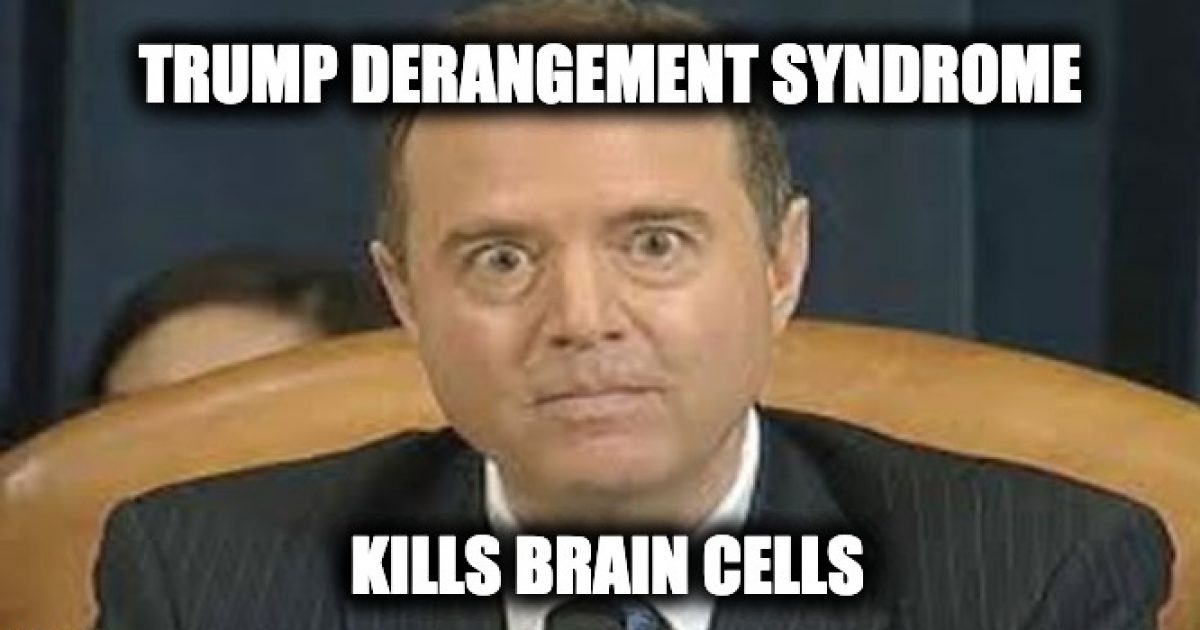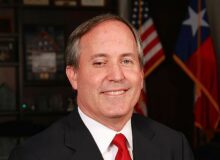George Papadopoulos
A seemingly minor, arcane detail about the FBI’s “Crossfire Hurricane” operation and the FISA application submitted on Carter Page in October 2016 has been out there for some time. The story about how Crossfire Hurricane got started on 31 July 2016 was first told by the New York Times in December 2017. The story was that a report from Australian official Alexander Downer got the ball rolling.
Downer had met with George Papadopoulos in London, on 10 May 2016, at which time Papadopoulos was said to have made a drunken disclosure about an intermediary for Russia (Maltese Professor Joseph Mifsud) telling him of “dirt” the Russians had on Hillary Clinton, in the form of “thousands of emails.” The meeting with Mifsud occurred on 26 April 2016.
The FBI was alarmed at this information, which was received from Downer more than two months later, in late July 2016 (after the release of the trove of Hillary’s emails by WikiLeaks).
That summer, the FBI had also reportedly been following the activities of Carter Page (who had been a confidential informant for some time, for a Bureau operation that began in 2013). The FBI was concerned about a Page trip to Moscow in early July, during which Page met with Russian officials. The coincidence of these data points – Page’s journey and the disclosure about Papadopoulos – prompted the FBI to launch Crossfire Hurricane.
Here is the arcane little detail. The New York Times story from December 2017 says Papadopoulos told Downer about the “dirt” on Hillary and the “thousands of emails.” Remember that going forward.
But neither Downer nor Papadopoulos says that happened. Papadopoulos has been emphatic on multiple occasions that he did not speak to Downer of “dirt” or “thousands of emails,” and in fact that he didn’t talk to Downer about the Russians having damaging information on Clinton at all.
Downer said in two media interviews in 2018 that in their May 2016 meeting, Papadopoulos mentioned “damaging information” the Russians were said to have on Hillary. But Downer didn’t say there was a discussion of either “dirt” or “thousands of emails.” It’s also not clear that Downer had details on the timing of the Mifsud-Papadopoulos meeting, or that he passed anything specific in that regard to the FBI. (Downer was reportedly interviewed by the FBI in early August 2016, right after Crossfire Hurricane was launched.)
Downer disavowed the particular terms “dirt” and “emails” in his interview with The Australian in April 2018.
Downer told The Australian. “He [Papadopoulos] didn’t say dirt; he said material that could be damaging to her. No, he said it would be damaging. He didn’t say what it was.”
Jeff Carlson has the canonical write-up on the Downer side of the story here.
As for Papadopoulos, John Solomon reported his insistence on the matter in an October 2018 article at The Hill. In fact, it wasn’t just Downer to whom Papadopoulos said nothing about dirt or emails on Hillary. Stefan Halper contacted Papadopoulos in September 2016, trying to get Papadopoulos to acknowledge having information about dirt on Hillary. Papadopoulos claims he said nothing to Halper either. Instead, he shut down the line of questioning from Halper. He also told Halper the Trump campaign had nothing to do with such information.
Solomon pointed out in October that that would have been exculpatory information to include in the FISA application the FBI made in October 2016.
The FISA warrant was drafted to target surveillance at Page but also cited Papadopoulos in a section that suggested Russia was coordinating election collusion through Page and “perhaps other individuals associated” with Trump’s campaign.
“The truth is, the Papadopoulos predicate went into reversal, but rather than shut down the probe at that point, the bureau turned to other leads like Steele and Page without giving the court a full picture,” one source said. …
If Papadopoulos is telling the truth, the FBI possessed a critical piece of exculpatory evidence by September 2016 that called into the question the legitimacy of its Trump-Russia collusion probe.
Papadopoulos recounted the same details in a radio interview with Dan Bongino on 2 November 2018. To hear the segments on Halper’s and Downer’s contacts with Papadopoulos, start at the 47:00 mark. (It’s well worth the 20 minutes.)
It’s right at the 58:00 mark when Papadopoulos says that with Downer, he didn’t discuss the Mifsud overture about dirt and thousands of emails at all.
He didn’t discuss it with Stefan Halper either. These statements by Papadopoulos are eminently credible since if he had had those discussions and used those words, Mueller would have done something with that information that we’d know about by now.
Instead, tellingly, there is no record from Mueller’s prosecution of Papadopoulos about either the contact with Downer or the communication with Halper. Nothing useful to the Mueller investigation was apparently obtained regarding either contact. See Jeff Carlson for links to the plea agreement documents.
A final point is one reported in both the interview with Dan Bongino and the John Solomon article: that Papadopoulos didn’t tell anyone on the Trump campaign staff about the Mifsud allusion to “dirt” and “thousands of emails.”
Note that this is likely to be true as well. The plea agreement documents on Papadopoulos recount a number of his contacts and conversations with members of the Trump campaign, both before and after the 26 April 2016 meeting with Mifsud. None of those contacts makes reference to the dirt/emails information at all. If there had been such conversations, we’d know about it.
The new information: A FISA surprise
So why the big build-up, on this business with the “dirt” and “thousands of emails” references?
Because if we go by the official record, and by the statements from Downer and Papadopoulos – including what Mueller accepted from Papadopoulos in the plea agreement – the FBI in October 2016 did not know from any source we’ve been told about that Mifsud said “dirt” and “thousands of emails” to Papadopoulos on 26 April 2016.
That makes a nugget just unearthed in a report from March 2018 a fascinating one. The report is a summary by the minority staff of the House Intelligence Committee, which at the time was the Democrats’ staff, led by the ranking member, Adam Schiff.
The hat-tip on this, to “Undercover Huber” (@JohnWHuber), is delivered with a trumpet fanfare and a flourish.
????“In evidence before the FISA Court, the DOJ also revealed that the Russians previewed the release of this information [“dirt” in the form of “thousands of emails”] to Mr. @GeorgePapa19 at that time [April 2016]” pic.twitter.com/vGrsSJJd7t
— Undercover Huber (@JohnWHuber) April 3, 2019
Here is what the Democrats’ summary says on page 4. Note the passage down in the paragraph highlighted in boldface:
Campaign knowledge of email hack. As the Special Counsel has revealed, weeks before the world learned that Russian actors hacked into the DNC and the Clinton campaign, the Russians, through intermediaries, informed one of candidate Trump’s five named foreign policy advisors, George Papadopoulos, in April 2016 that the Russian government had “dirt” on Hillary Clinton in the form of “thousands of emails.” In evidenc [sic] evidence before the FISA Court, the DOJ also revealed that the Russians previewed the release of this information to Mr. Papadopoulos at that time. The early date of this contact is significant: even the Clinton campaign was not yet aware that Russia possessed their stolen emails.
The minority summary appears to be indicating that at least one of the FISA applications used information the FBI apparently had about the April 2016 meeting – but did not obtain from Downer or from Halper.
The Democrats in fact emphasized in their summary that the date of Mifsud’s disclosure to Papadopoulos was “significant,” because it meant Mifsud was telling Papadopoulos about the email heist before the Clinton campaign knew about it.
The principal takeaway from this passage is that what went into the FISA application looked, almost word for word, like what was in the NYT article from December 2017.
Yet the FBI, according to the official version of events, had no way of knowing, when it first presented the FISA application, that Mifsud had spoken to George Papadopoulos in the terms outlined in that article. Not only had Papadopoulos not said such words to Downer or Halper; he hadn’t even told others in the Trump campaign. (Note: Margot Cleveland came to a similar conclusion in June 2018, although she didn’t reference the March 2018 minority staff summary at the time. The nugget from the March 2018 summary clarifies that including Papadopoulos in the FISA justification does, in fact, need an explanation.)
The FISA applications are too redacted for us to be sure what was included in the first one filed, in October 2016. Obviously, it’s an essential question whether that initial application contained the dirt/emails reference. If so, we need to know how the FBI was aware of that.
An FBI scramble
This history gives fascinating context, meanwhile, to the statement of offense for the Papadopoulos plea agreement (on a false statement charge), filed 5 October 2017. The statement refers to two interviews the FBI did with Papadopoulos, one in January 2017 and one in February 2017. It was in the January 2017 interview – conducted on 27 January – that the FBI finally had official notice that Papadopoulos had been told by Mifsud about “dirt” and “thousands of emails.”
That information could thus have been included based on a known, formally acknowledged the source in the applications for FISA renewal in April 2017 and June 2017.
As John Solomon pointed out, the FBI could have had – months earlier – the exculpatory comments Papadopoulos made to Stefan Halper in September 2016. If Halper was reporting to the FBI on his contacts with Papadopoulos, those comments should have been included in whatever FISA applications contained a reference to the dirt/emails discussion.
Since Papadopoulos was also mentioned in the initial October 2016 application, moreover (he appears by name on page 8) — whether it included language about “dirt” and “thousands of emails” or not — the exculpatory comments should have been included in that one as well. (I continue to have a serious question as to the vague, hearsay, and unverified nature of the information from Alexander Downer, which is the only basis for including Papadopoulos in the FISA justification, as far as I can tell. Everything else Mueller records about Papadopoulos involved his attempts to arrange meetings with Russians for Trump or members of his campaign. There is nothing inherently nefarious about that, even if the FBI was tracking it.)
But beyond those considerations: with all this for hindsight, the false statement charge against Papadopoulos, written up in the statement of offense, takes on a peculiar aspect. The statement of offense makes quite a bit of the fact that in the 27 January 2017 interview, Papadopoulos misstated when he had been told about “dirt” and “thousands of emails.” In that interview, he apparently said he was told about them before joining the Trump campaign. That would have put the disclosure sometime in or before the middle of March 2016.
Eventually, George Papadopoulos copped to having received the dirt/emails confidences from Mifsud on 26 April 2016.
But the question is: how did the FBI know to press that issue and get Papadopoulos to admit to a different date? They didn’t know it – they didn’t have the information in its now-identifiable outlines – from Downer in July 2016, and they didn’t know it from Halper in September 2016.
One possibility, which may or may not be the likeliest one, is that once the first Carter Page FISA authorization was obtained, the FBI did a complete dump of George Papadopoulos’s communications. If Papadopoulos communicated with anyone about the 26 April 2016 meeting, even someone outside the Trump campaign, the FBI might have gotten the information that way; i.e., been able to connect the verbiage with the date of 26 April 2016. The dirt/emails theme might thus have been usable starting with the second FISA application in January 2017.
That method would have invoked the “two-hop” rule, with Papadopoulos probably in the circle of the second hop from direct communication with Carter Page.
Another hypothetical possibility, if we accept the official narrative, is that U.S. intelligence was tracking communications between Mifsud and the Russians. Perhaps Mifsud sent a full account of the meeting to a Russian contact. (As Margot Cleveland points out, of course, the view of Mifsud as a Russian asset has been pretty well debunked by Lee Smith.)
But assuming this premise, we’d require explanations: (a) why nothing more could be made of it as a counterintelligence feature of the investigation; and (b) what the purpose was of sweating George Papadopoulos so hard over the April 2016 meeting. He obviously did nothing further with the information. If the FBI knew what Mifsud was saying to the Russians, they had a legitimate national security reason to check Papadopoulos’s communications to verify that he took it no further. But they didn’t need interviews with him later to set him up for a process infraction.
A third possibility is not unlikely at this point, given everything else we’ve seen. That possibility, of course, is that the FBI knew – or someone else involved knew – everything Joseph Mifsud knew about the 26 April 2016 meeting, because Mifsud was working for them.
Cross-Posted With Liberty Unyielding






